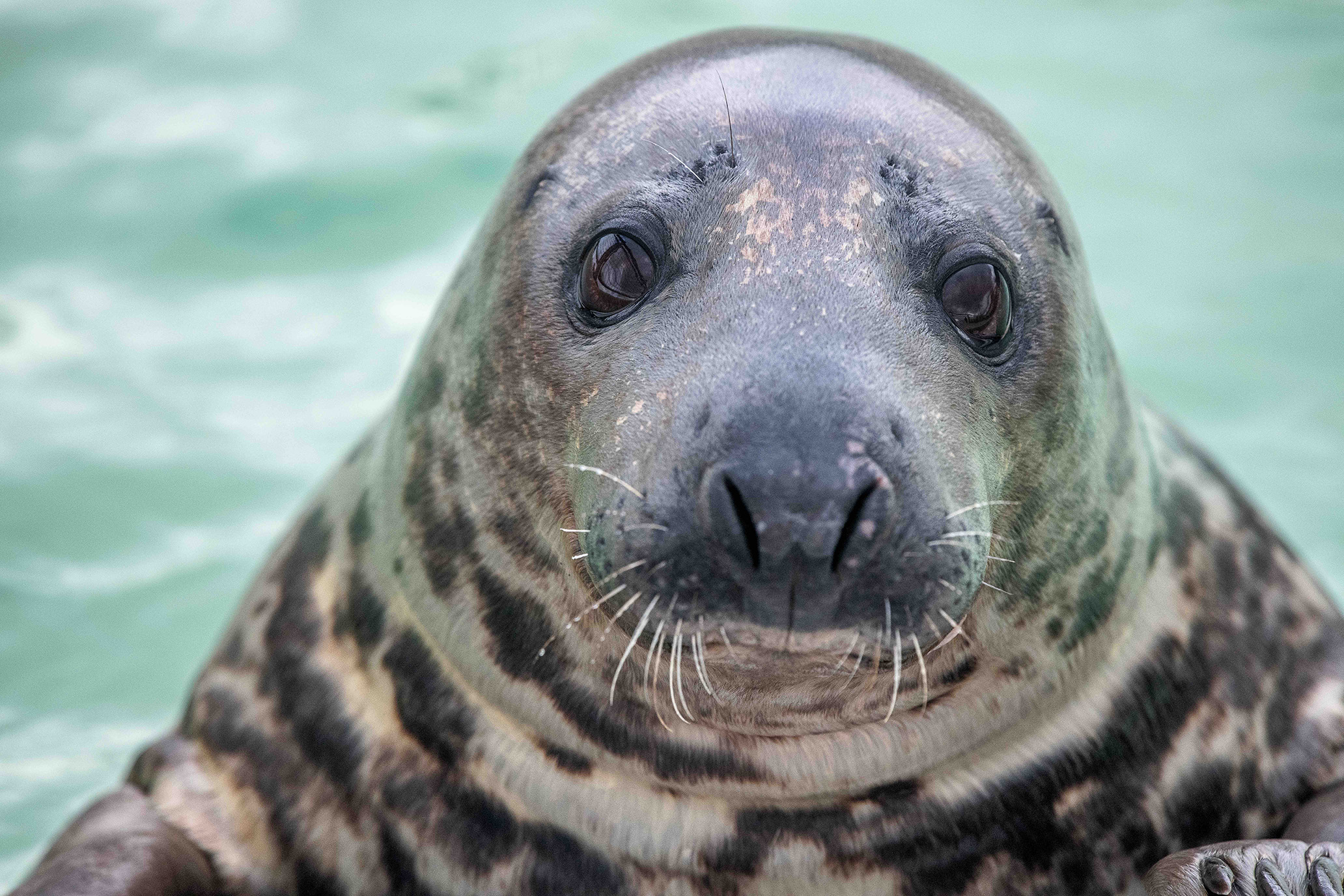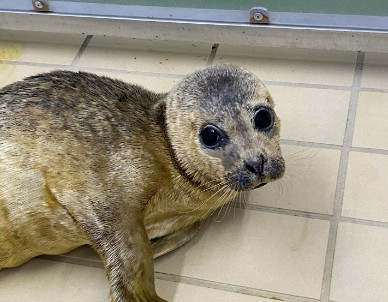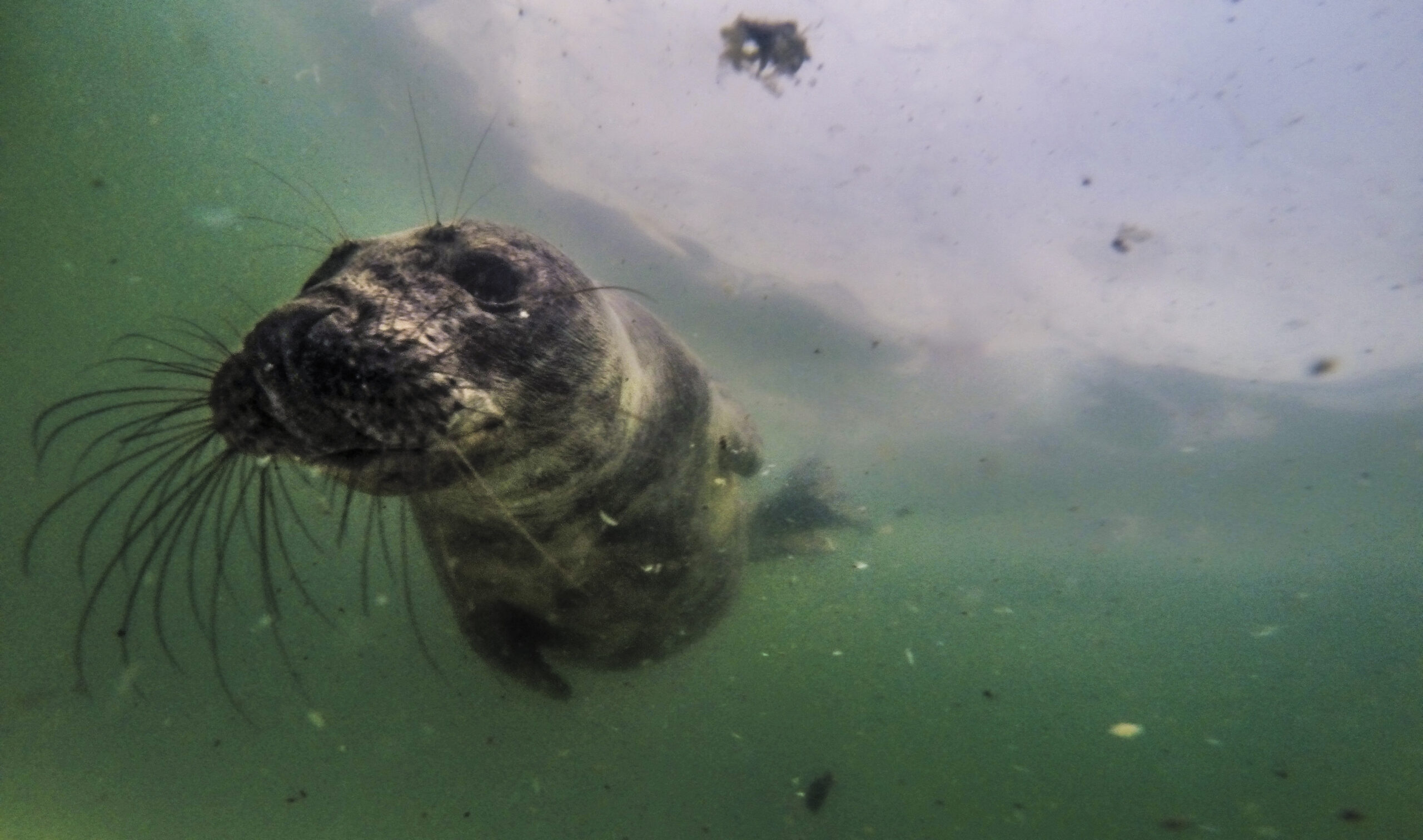Herpes in seals
The herpes virus that seals can carry is not the same herpes virus that we humans can get. It is a highly contagious virus, which is why we are doing everything we can to prevent any spread in the Sealcentre.
See also
Types of herpes
Herpes is a virus that seals carry for the rest of their lives after infection. This virus is not the same herpes virus that humans can get. There are seven variants of this phocine herpesvirus (PhHV).
Did you know...
Our vet Ana, together with other scientists, has discovered the seventh variant of the phocine herpes virus? (1)
We think it is very special that our head veterinarian Ana Rubio García belongs to the group of scientists who discovered this seventh variant in 2014 (1). When seals in our rehabilitation centre carry herpes, it is almost always this seventh species.
Symptoms of herpes
Herpes is not clearly visible by one specific complaint or change in appearance. Seals can have several complaints at the same time. Possible symptoms of herpes viruses are:
- Runny nose (often with blood)
- Inflamed oral mucosa
- Vomiting
- Diarrhea
- Fever
- Cough
- Pneumonia
- Hair loss in grey seals (2)
Herpes remains in the seal's body forever. As a result, the complaints can occasionally return. Something similar happens in humans as well. The cold sore, an irritated blister that some people get around the mouth, is a characteristic of the herpes virus (herpes labialis). If you become infected with the cold sore, you will keep this virus with you for the rest of your life (3). In case of stress or fever, you can regularly get a cold sore again, which always disappears over time.
How do seals get herpes?
Herpes is a highly contagious disease. Seals can transmit it to each other through virus particles in the air. That is why it is very important to immediately separate a seal with herpes from the other seals in the sanctuary, by placing them in separate enclosures.
Treating herpes
There is no cure for herpes. We do try to counteract the symptoms of the virus, for example by lowering the fever with medication. We can also treat the inflamed oral mucosa by giving mouthspray. As soon as the seal no longer has any symptoms, it is no longer contagious. The animal can then stay with other seals and eventually be released.
Sources:
- Bodewes R, Contreras GJS, García AR, Hapsari R, van de Bildt MWG, Kuiken T, Osterhaus ADME. Identification of DNA sequences that imply a novel gammaherpesvirus in seals. J Gen Virol. 2015;96(Pt 5):1109–14.
- Field, C. L. (2022, 7 juli). Viral diseases of marine mammals. MSD Veterinary Manual. Geraadpleegd op 30 juni 2022, van https://www.msdvetmanual.com/exotic-and-laboratory-animals/marine-mammals/viral-diseases-of-marine-mammals
- Herpes labialis (koortslip) | RIVM









